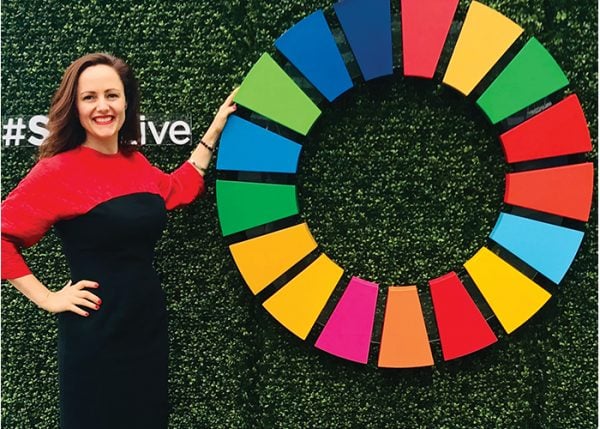
It’s difficult to walk into any store or browse online and not notice the new green packaging line from your favourite shampoo brand, or the animated leaves wrapped around household cleaning products, not to mention the abundance of produce claiming to be carbon neutral. Unfortunately, hidden amongst these ethically driven products is the very real fact that up to 40 per cent could be considered as misleading marketing.
Ethical consumerism is booming. According to the Ethical Consumer Report, between 2019 and 2020 ethically made products purchased in the UK rose a massive 24 per cent, making the industry now worth more than £122bn annually. That’s an enormous increase from £11.2bn in 1999.
So why is it important to get your sustainable marketing communications right? Because if you don’t, you risk losing the appeal to this savvy, ever-growing consumer, and instead being accused of greenwashing.
Greenwashing is making unsubstantiated, misleading or deceptive claims about environmental, ethical or social sustainability to help sell products. Often these claims can lead to making well-intended consumers believe they’re having a positive impact on the environment or doing something good, when in fact they’re not.
‘‘sustainability isn’t a department; it’s a language we all need to understand.”
Sadly, businesses often aren’t even aware they’re greenwashing as they don’t have the expertise to know what is truly environmentally beneficial and what is not. Either that or they’re using powerful PR tactics to appear more socially and environmentally sustainable than they really are, so as to attract more buyers and make more profit.
In the often overcrowded world of marketing it is easy to get caught up in the hype of wanting to stand out, finding the latest, trendiest, even the most fashionable USP that will set you apart from your competitors. But when a company focuses its marketing strategy primarily on just its ‘green’ credentials, making this seem core to what it is primarily geared toward, this is where the mistakes happen.
In the 1980s Chevron launched a series of television and print ads to convince the public of its positive environmental impact. The award-winning campaign shows its employees protecting wildlife, from bears to butterflies and sea turtles to the land. Interestingly, while these ads were running, Chevron was violating the Clean Air Act and the Clean Water Act, not to mention the oil that was spilling into our precious ecosystems. This is just one example of how marketing tactics were used to focus on an area of a business that was in fact nothing to do with the core of the company.
To avoid greenwashing, you must first understand that sustainability isn’t a department; it’s a language we all need to understand and eventually speak.
When Google and Facebook first showed up, everyone thought of the digital space as an add-on or a separate department issue. But really it was an entirely different language that we all needed to learn and implement into all aspects of marketing. Fast-forward 20 years and I think it would be safe to assume most of us understand the importance of a digital footprint for every brand.
The good news is sustainability is no longer just a marketer’s responsibility. Whether it’s your shiny new ESG strategy that needs integrating across every department or translating to communicate your values to your consumers, you’re going to need experts who know what they’re doing to support the process. Otherwise, you simply risk being accused of greenwashing, which will do irreversible damage to your brand, or worse still ‘greenhushing’ – a term used to describe the fear felt by a brand that is paralysed by not knowing what to say, so it says nothing at all.
To ensure your sustainable communications strategy doesn’t fall within the greenwashing category you first need to identify the hotspots within your company and its supply chain. Don’t make claims that market one aspect when the core to your business and its real impact is something entirely different. There’s no point singing and dancing about the number of trees you’ve planted if your core business is having a devastating effect on our oceans.
In many regions across the globe consumer laws have been developed with their own principles and regulations to protect consumers from misleading and unsubstantiated claims. Although we don’t have these principles officially set up in the UAE yet, the plentiful initiatives in the region indicate they are coming, so be prepared. Surround yourself with experts who know how to translate your communications strategy across all sectors of your business, including key stakeholders and your consumers. Without the proper infrastructure in place to adhere to these principles, you’ll quickly lose market share. Communicating your sustainable communications strategy is simple if you do it right, and for the right reasons. It’s complicated if you’re doing it for all the wrong reasons.
As marketers, it is your responsibility to familiarise yourself with the ‘green claims codes’ within your region. Equally, your agency should take the same responsibility of knowing the law too, as well as understanding your consumer. With ethical consumerism on the rise, make sure you learn the importance of avoiding greenwashing, regardless of the law.
Consumers want to buy products that match their values. Ensure your claims are truthful and core to your business; your consumer will choose your brand based on this. Use language that the average member of the public will understand and ensure you can back this up.
In the future I hope we will be able to have full environmental and social disclosure alongside annual financial disclosures. This might include areas such as governance, community, workers, environment, carbon footprint and carbon reductions. I also envisage marketers giving their agencies carbon budgets to work with alongside their marketing budgets. Like all budgets, once this is gone, that’s it. Just think of how creative we’ll all have to become then.









